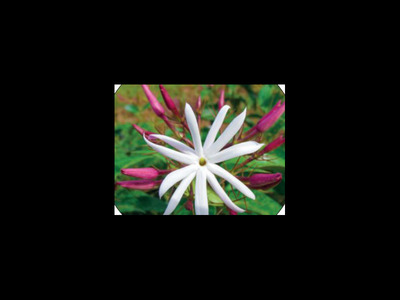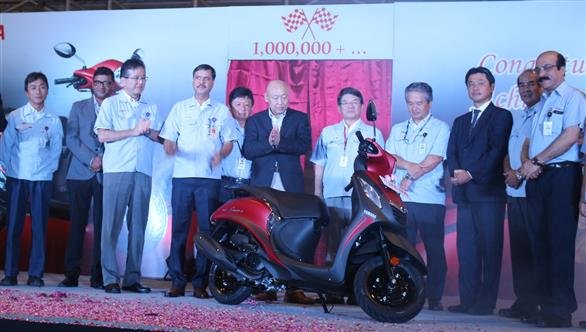31
30
29
New jasmine variety promises blooms, profit in dry months
The state boasts of being one of the major cultivators of jasmine in the country . Yet, with jasmine being a seasonal shrub, its cultivation is limited between March and September, leaving farmers unemployed during the off-season. Not anymore.
Floriculturists at Tamil Nadu Agricultural University (TNAU) are now working on developing a variety of jasmine that grows all year round. Called the improved CO2 variety of `pitchi’ -one that is popular for hair accessorising – it promises to produce flowers throughout the year.
Though the yield of the variety is expected to be around 30% lesser than the older varieties of pitchi jasmine, it will give the farmers extremely high returns during the off season or winter.
The older varieties of pitchi jasmine cultivated during the flowering season (between March and September-end) give farmers an annual yield of around 10 tonnes per hectare.
“However, the price of jasmine during the season is only Rs150 per kg. They almost have no income during the off-season, ” says professor and head of the floriculture department, M Kannai.
“But, there were a few farmers who harvest their flowers during the off season too, because it yields a much better price. That is what gave us the idea to come up with a clone of a variety that grows all year round, ” he adds.
The new variety called `improved CO2′ is expected to produce a uniform yield throughout the year. “The variety will give an overall yield of 7 tonnes per hectare, which is 30% lesser than the yield given by CO1 and CO2,” says Kannan.
“But the advantage is that farmers will be able to rake in at least `700 to `800 per kg for even loose flowers during the off season between October and February. Thus, the returns for farmers will be higher with the new variety than the older CO1 and CO2 varieties, ” he adds.
The variety is also resistant to major diseases and pests that affect the jasmine plant. “The buds of the new variety are an intensive pink, com pared to the usual light pink, but once the flower blooms, it assumes a neat white colour, ” says Kannan.
The only disadvantage of the variety is that, with a shelf life of hardly 24 hours, the pitchi jasmine is unlikely to be chosen for ex ports. The Gundu Malli which stays fresh for around 48 hours when refrigerated is instead preferred for exports.
Multi-locational trials of the variety have been under progress for the past six months, say department staff. ” We have been conducting trials with the new variety in farmer’s fields, shrubs for which were planted in March.Some of them have started bearing flowers too, ” says Kannan. The department has also distributed plants of the new clone to around 25 jasmine farmers in 10 jasmine growing districts including Madurai, Dindigul, Erode, Krishnagiri, Villupuram, Thiruvannamalai and Coimbatore.
source: http://www.timesofindia.indiatimes.com / The Times of India / News> City News> Madurai News / by Pratiksha Ramkumari / TNN / September 26th, 2017
27
26
25
24
Yamaha India rolls out 1 Millionth two-wheeler from Chennai factory
India Yamaha Motor (IYM) Pvt Ltd on Friday achieved a milestone by rolling out the one-millionth two-wheeler to be produced at its Chennai, Tamil Nadu factory in two-and-a-half years of operations. The millionth two-wheeler to be produced at the Yamaha premises is a unit of the Yamaha Fascino. India Yamaha Motor has reached this figure on the back of good sales of its two-wheelers including the Ray Z, Ray ZR and Alpha scooters, and the Saluto and Saluto RX motorcycles. Yamaha had begun operations at the Chennai facility in March 2015 with an initial production capacity of 4.5 lakh units per year, ramping it up to 6 lakh units this year. India Yamaha Motor now aims to produce 9 lakh units per annum by 2019 at the Chennai factory and 7 lakh units at its facility in Surajpur, Chattisgarh, taking total production to 1.6 million units in two years. Yamaha recently launched the Fazer 25 faired version or its FZ25 250cc motorcycle. To boost sales, Yamaha has also been launching scooter boutiques in select cities of the country.
IYM deputy MD Riuji Kawashima said that the company would continue to enhance the production facilities in India to better serve the Indian market. Yamaha has so far invested Rs 1,300 crore in the Chennai Factory and plans to invest more than Rs 200 crore by 2018. Out of one million products manufactured from the Chennai Factory, 8.5 lakh units have been manufactured for the domestic market and remaining 1.5 lacs units for the export market including African market as well as ASEAN and Latin American markets. Yamaha Fascino is the most produced model with 3.7 lakh units. The production percentage ratio of the scooter & motorcycle production at the factory is 7:3 right now. The models with highest export numbers were the FZ series, Ray ZR, and Fascino.
source: http://www.overdrive.in / OverDrive / Home> News / Team OD / September 22nd, 2017

